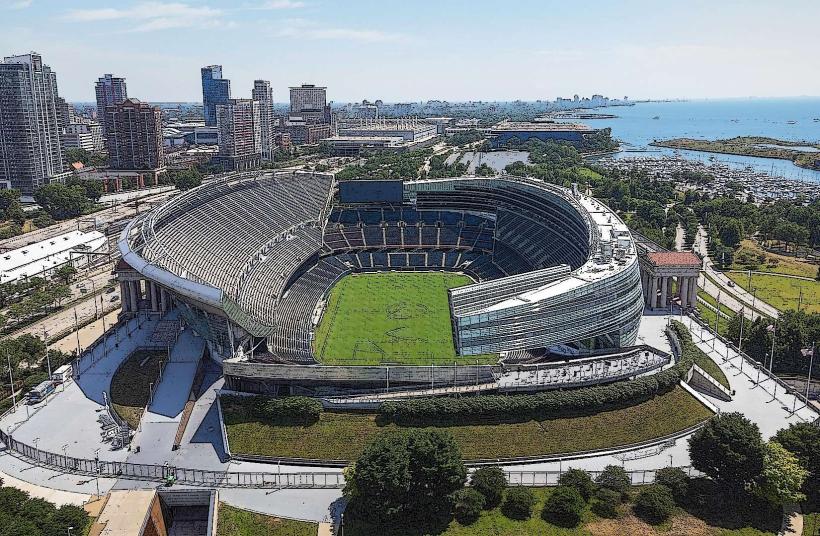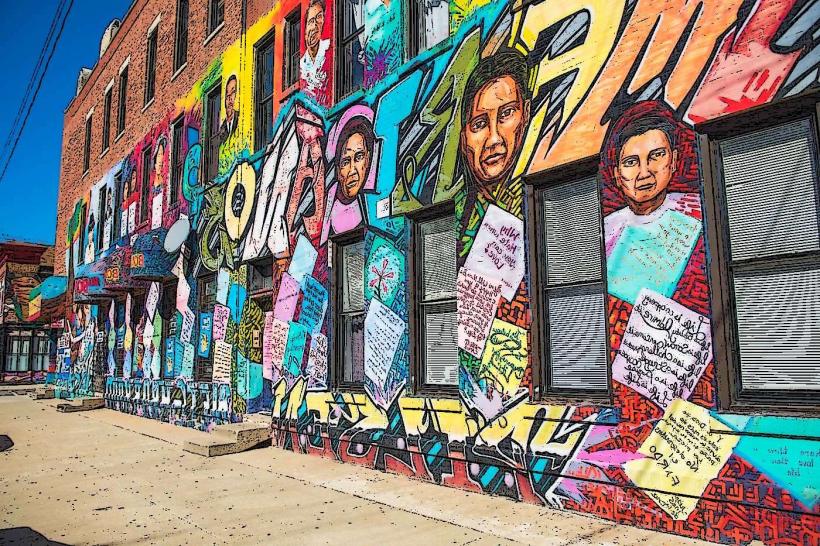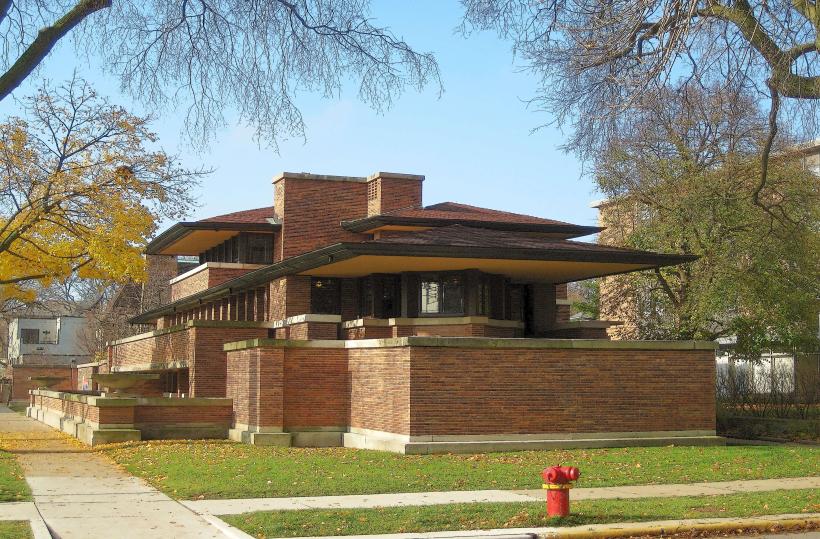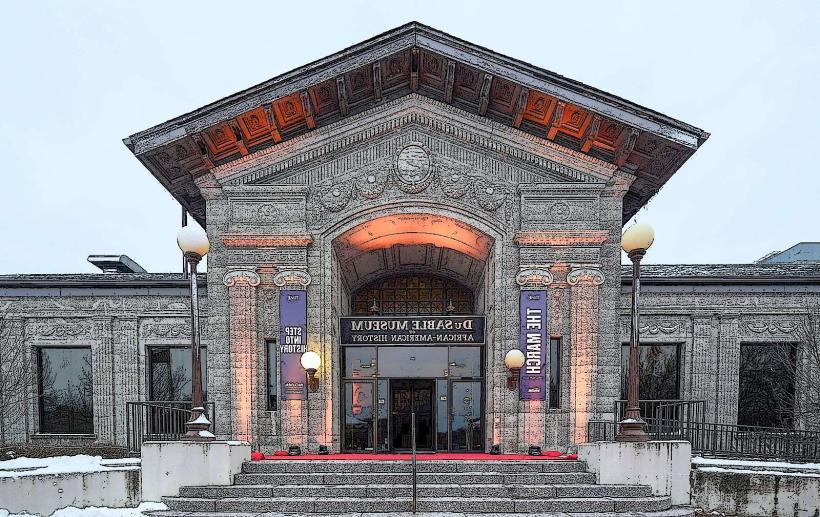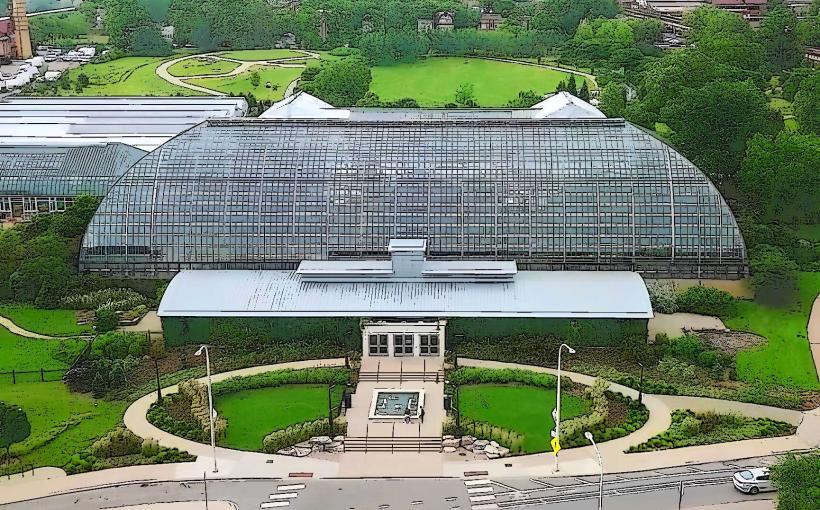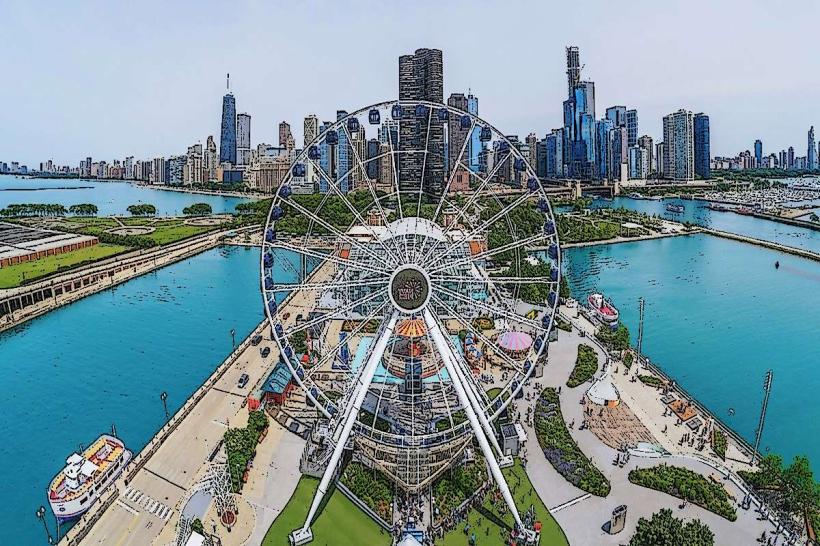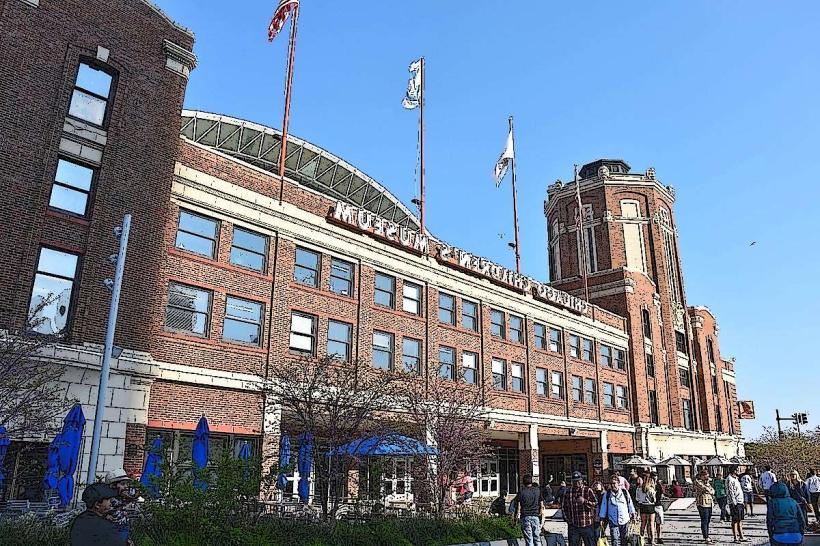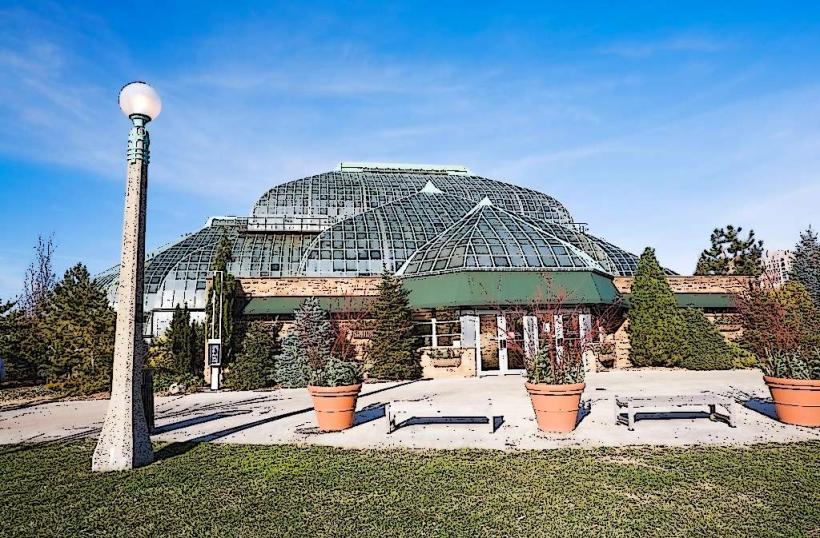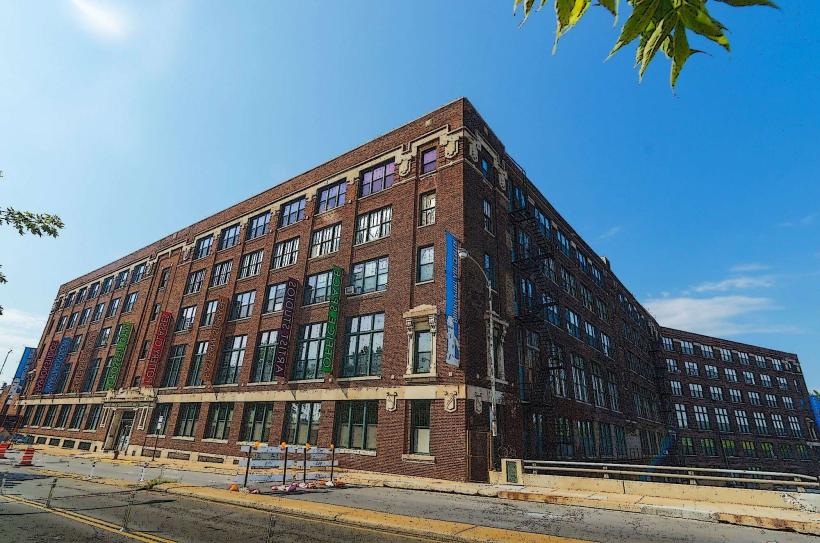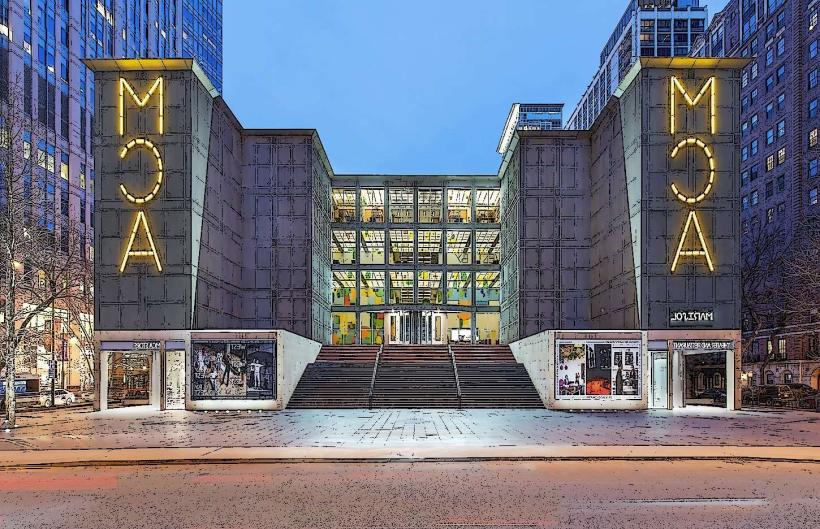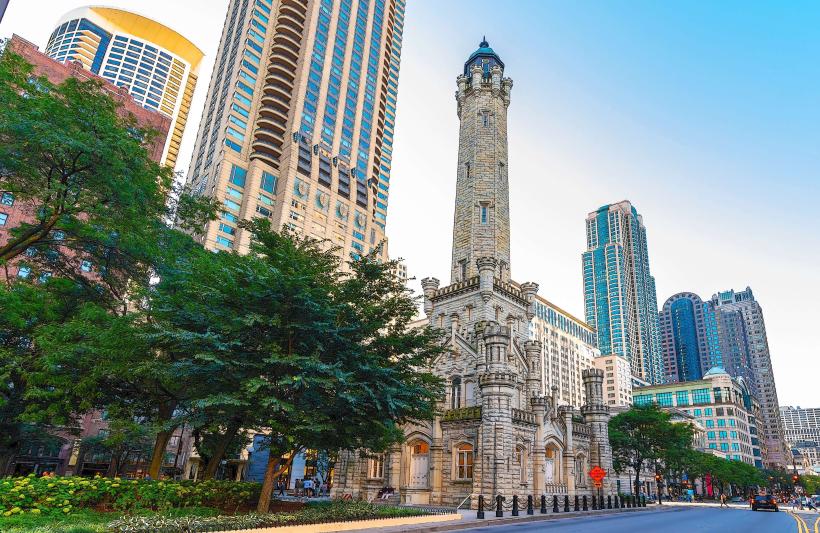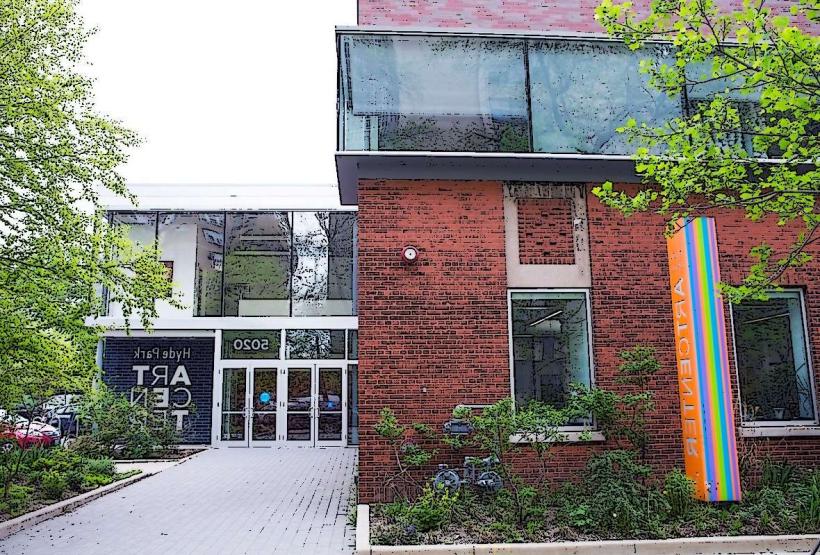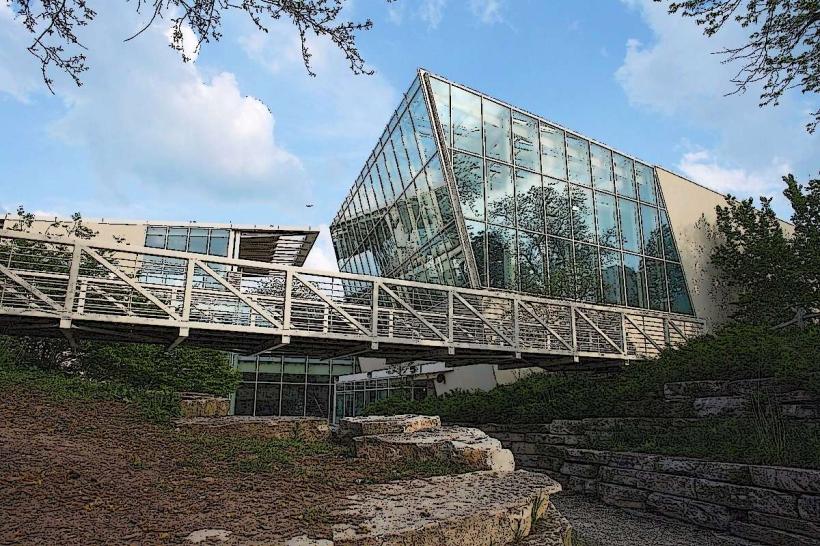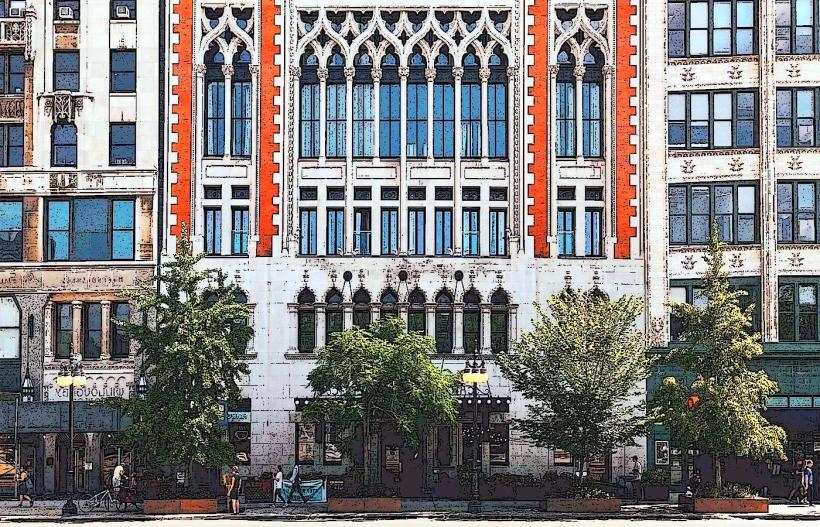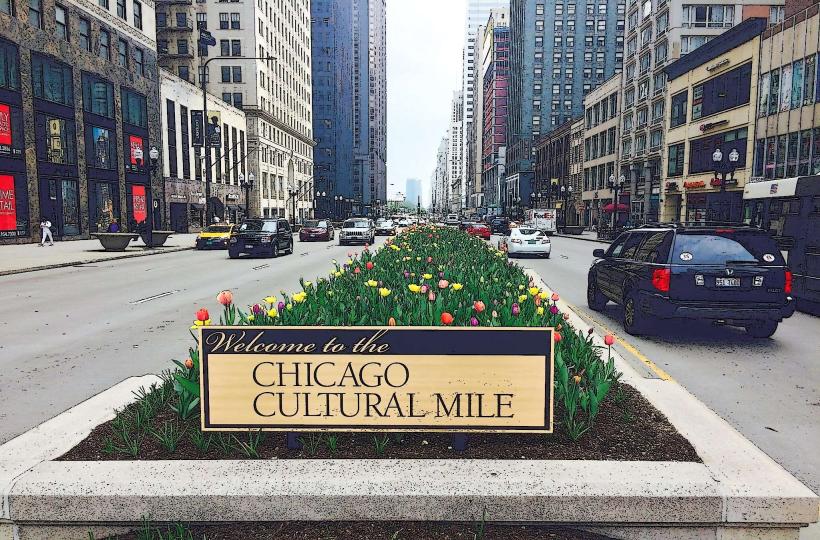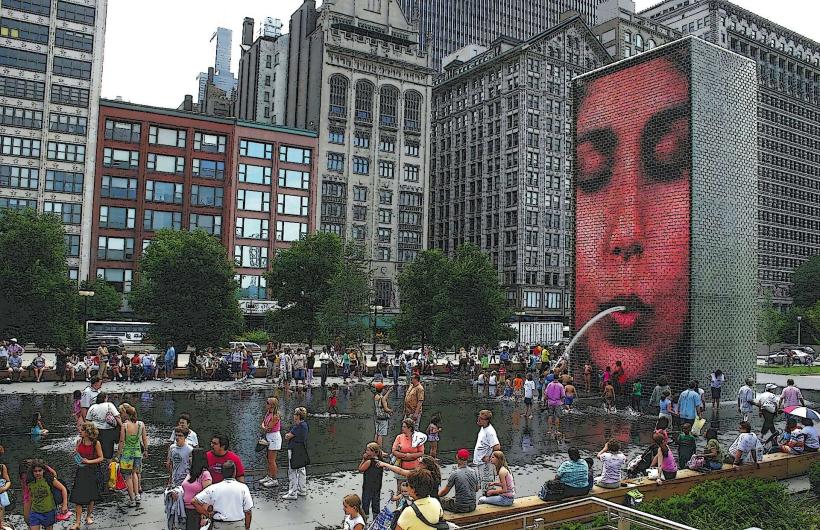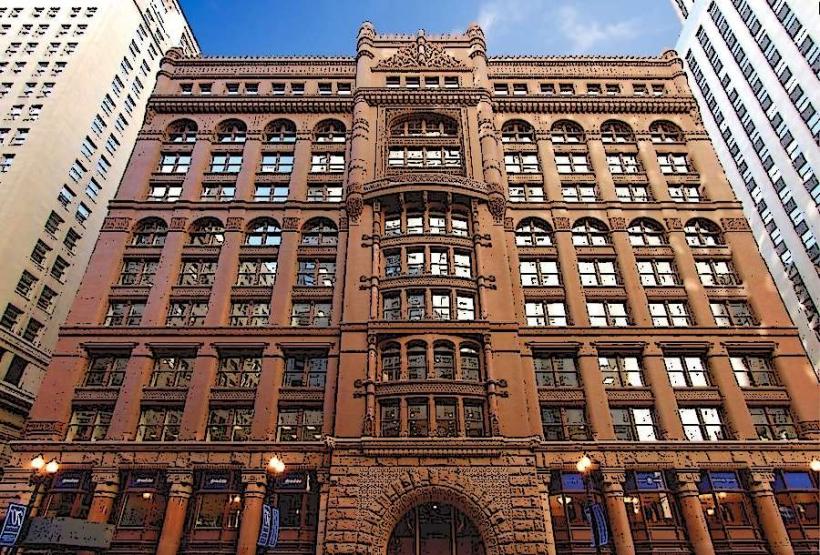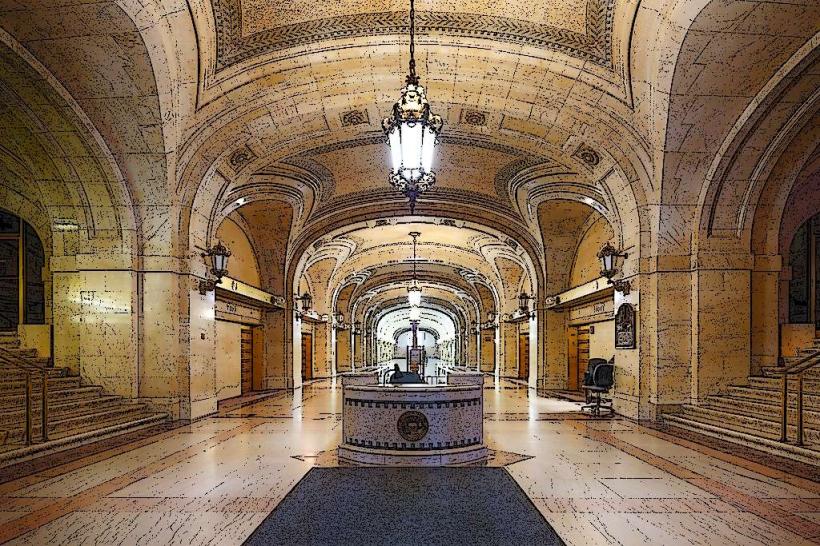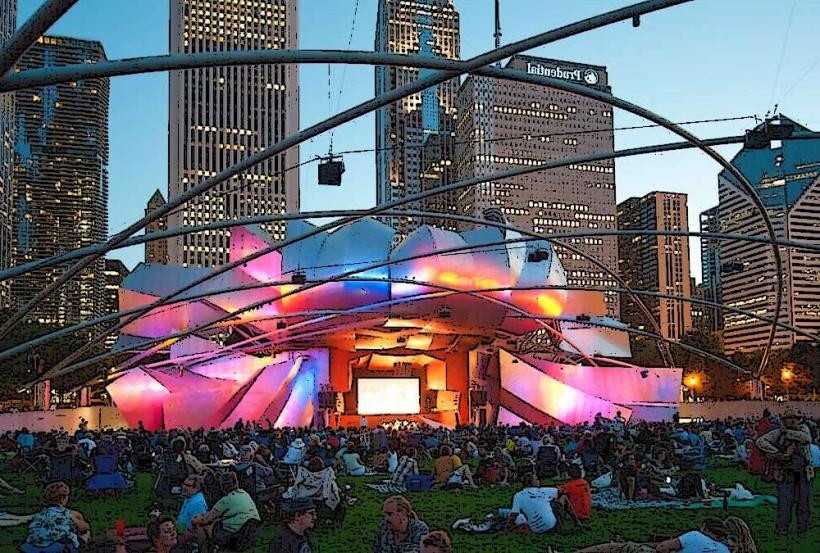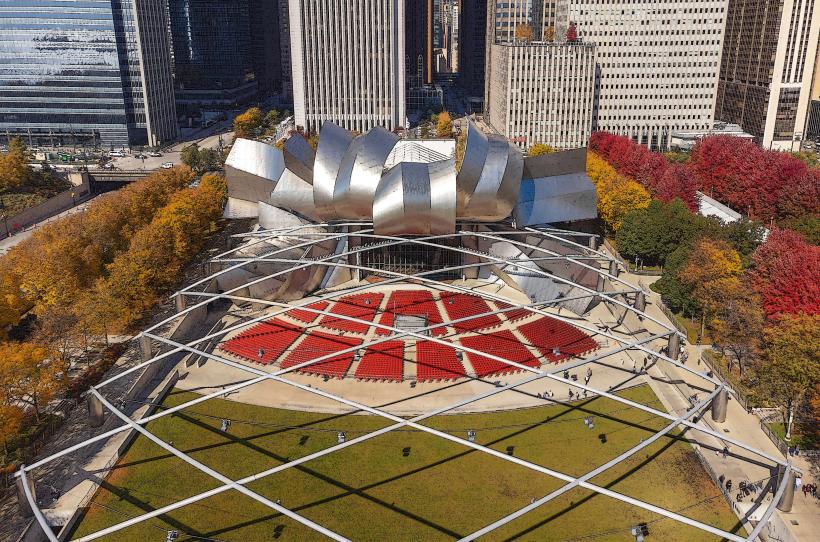Information
Landmark: Chicago Symphony Orchestra (CSO)City: Chicago
Country: USA Illinois
Continent: North America
Chicago Symphony Orchestra (CSO), Chicago, USA Illinois, North America
The Chicago Symphony Orchestra (CSO) is a professional symphony orchestra located in Chicago, Illinois. It is one of the five American orchestras commonly referred to as the "Big Five."
Visual Characteristics
The primary performance venue for the CSO is Symphony Center, located at 220 S. Michigan Avenue. The building's exterior is constructed from limestone and granite, featuring Beaux-Arts architectural elements. The main auditorium, Orchestra Hall, has a seating capacity of 2,521. Interior finishes include wood paneling and ornate plasterwork. The stage is approximately 60 feet wide and 30 feet deep.
Location & Access Logistics
Symphony Center is situated in the Loop district of Chicago, 0.5km South of the Chicago River. It is accessible via multiple public transportation routes. The CTA 'L' trains stop at the Washington/Wabash station (0.2km West) and the Monroe/Dearborn station (0.3km West). Numerous bus lines, including the 147, 151, and 157, stop directly in front of the building on Michigan Avenue. Limited metered street parking is available on Michigan Avenue and surrounding streets. Several paid parking garages are located within a 0.5km radius, including the Grant Park South Garage (0.4km East).
Historical & Ecological Origin
Orchestra Hall was designed by architect Daniel Burnham and built between 1904 and 1905. It was originally constructed as the home of the Chicago Orchestra, later renamed the Chicago Symphony Orchestra. The building's purpose was to provide a dedicated, acoustically superior venue for orchestral performances. It has undergone several renovations, most notably in 1997, to improve acoustics and patron facilities.
Key Highlights & Activities
The primary activity is attending orchestral concerts performed by the Chicago Symphony Orchestra. Concerts typically run for 2 to 2.5 hours, including one intermission. Patrons can purchase tickets for a variety of classical music programs, including symphonic works, chamber music, and guest artist recitals. Educational programs and backstage tours are also offered at scheduled times.
Infrastructure & Amenities
Restrooms are available on multiple levels within Symphony Center. Seating in Orchestra Hall provides climate control. Cell phone signal (4G/5G) is generally available within the building. Food and beverage services, including a cafe and bar, are located on-site. No outdoor shade structures are present at the immediate building entrance.
Best Time to Visit
Concert schedules vary throughout the year, with the main season typically running from September through May. Evening performances usually begin at 7:30 PM or 8:00 PM. Matinee performances are often scheduled for Saturday and Sunday afternoons. For photography of the exterior, morning light provides illumination from the East, while late afternoon light can highlight the West-facing facade.
Facts & Legends
The acoustics of Orchestra Hall are renowned, often attributed to the specific dimensions of the hall and the materials used in its construction. A persistent anecdote suggests that the original conductor, Frederick Stock, insisted on specific wood types for the stage to achieve the desired sound quality, though specific documentation is scarce.
Nearby Landmarks
- Art Institute of Chicago (0.1km North)
- Millennium Park (0.5km Northeast)
- Cloud Gate (The Bean) (0.6km Northeast)
- Buckingham Fountain (1.2km Southeast)
- Chicago Cultural Center (0.3km Northwest)

